Western Sydney Diabetes
Western Sydney is a known diabetes hotspot with rates far higher than the NSW average. The region is home to over one million adults, and NSW Health estimates that 13% of them are diagnosed with type 2 diabetes and 38% are at high risk of developing diabetes.
Western Sydney Diabetes (WSD) is a collaborative initiative led by the Western Sydney Local Health District, Western Sydney Primary Health Network, Diabetes Australia and the Department of Planning, Housing and Infrastructure. This year, we are celebrating 10 years of dedication to enhancing diabetes prevention through a series of partnerships and innovative programs.
Building on the Western Sydney Diabetes Leaders Alliance meeting held in June 2023, planning continued for the 2kg Challenge diabetes prevention campaign, rolled out in July 2024. This initiative has been warmly embraced by general practices, providing them with a practical and impactful method to address the diabetes epidemic within their patient communities.
In celebration of National Diabetes Week, WSD hosted various activities, including line dancing classes, healthy cooking demonstrations and free health stations. These events were designed to educate the community about diabetes and highlight how small lifestyle changes can significantly reduce diabetes risk.
The WSD team facilitated a face-to-face masterclass in October in Parramatta bringing together 300 health care professionals to better equip them with the skills to manage diabetes.

Virtual masterclass sessions, led by WSD in partnership with Primary Health Networks from Western Sydney, South Western Sydney, Nepean Blue Mountains and Hunter New England, as well as the Diabetes, Obesity and Metabolism Translational Research Unit and Agency for Clinical Innovation, were delivered to over 1,200 health professionals.
Cardiology in Community
The Cardiology in Community (CIC) program is part of the Western Sydney Care Collective initiative, a partnership between Western Sydney Primary Health Network and Western Sydney Local Health District.
An innovative model of care which was launched three years ago, the CIC program is supported by 25 general practices across Western Sydney. Since launching, the program has successfully screened over 11,000 patients for Atrial Fibrillation (AF), with 2,300 of those patients enrolled in supports linked to the program.
To date, 450 patients have utilised Heart Bug, a digital health device designed to assist in diagnosing those identified at risk of AF, with 84 of these patients newly diagnosed with AF due to this program.
The commitment of participating practices to take a proactive approach to patient care has undoubtedly made a significant impact on the wellbeing of individuals at risk of cardiovascular complications.
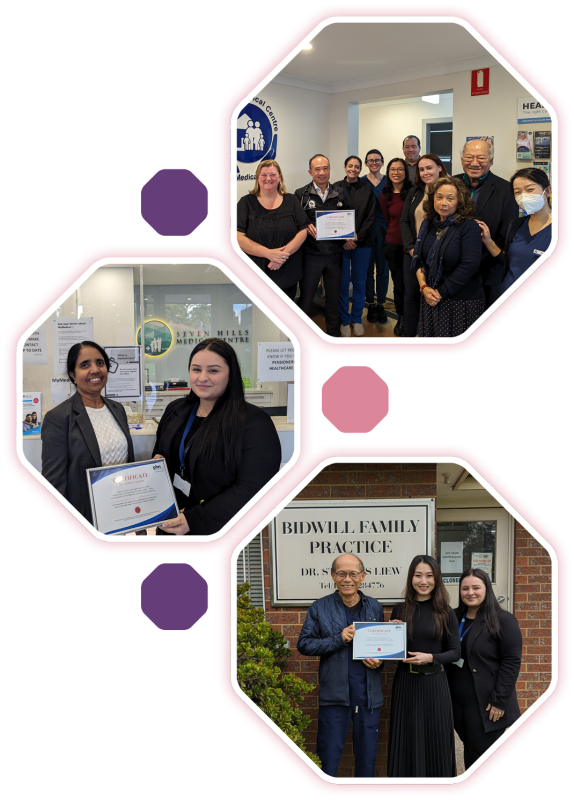
Live Younger Longer
Live Younger Longer is run by Live Life Get Active (LLGA), part of the Active Ageing program, and has been developed to help people, as they get older, to live fitter, healthier and happier lives. It is expected that the program will result in participants relying less on other forms of health care, including GPs and specialists.
In October, three programs were run in the Blacktown Local Government Area with 71 participants, 53% of whom were born outside of Australia. Delivered across seven sessions, the program provides education and support, focusing on improving the physical, cognitive, mental, nutritional, social and general health of participants.
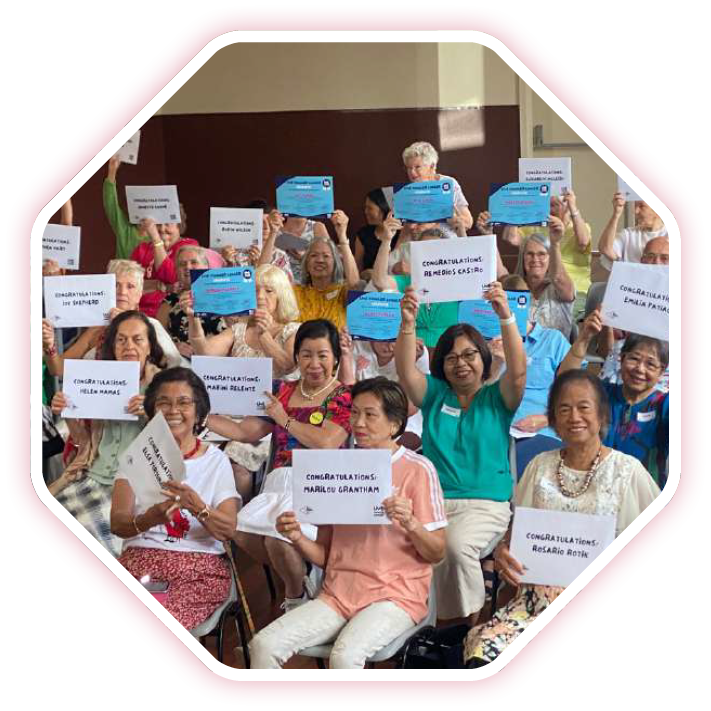





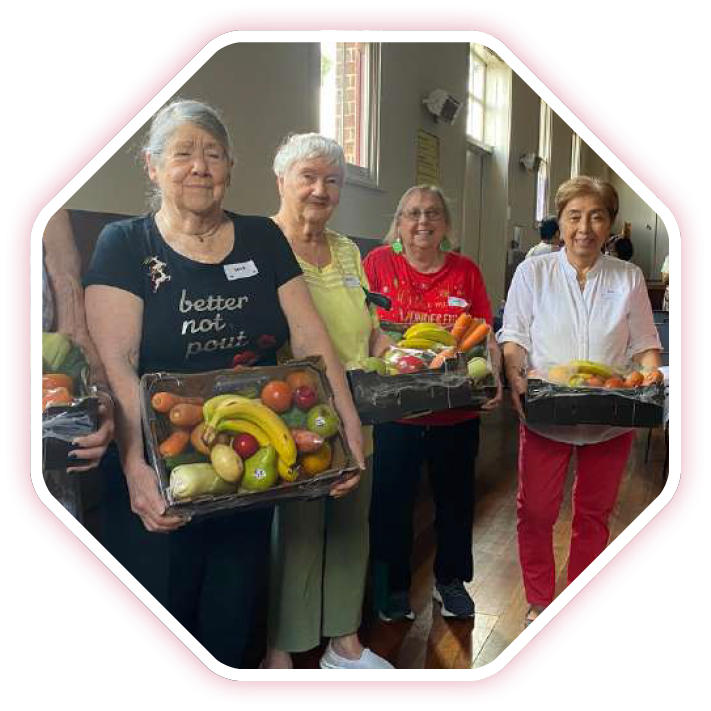
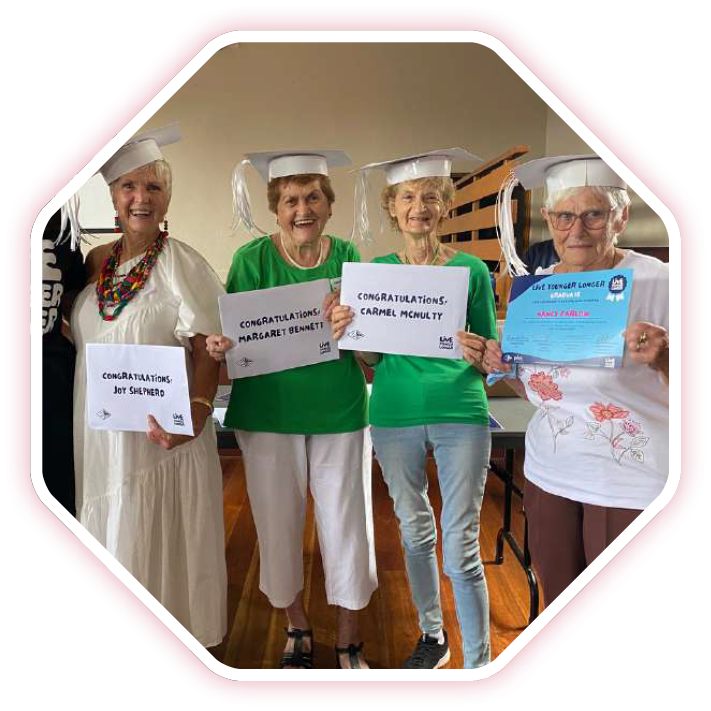
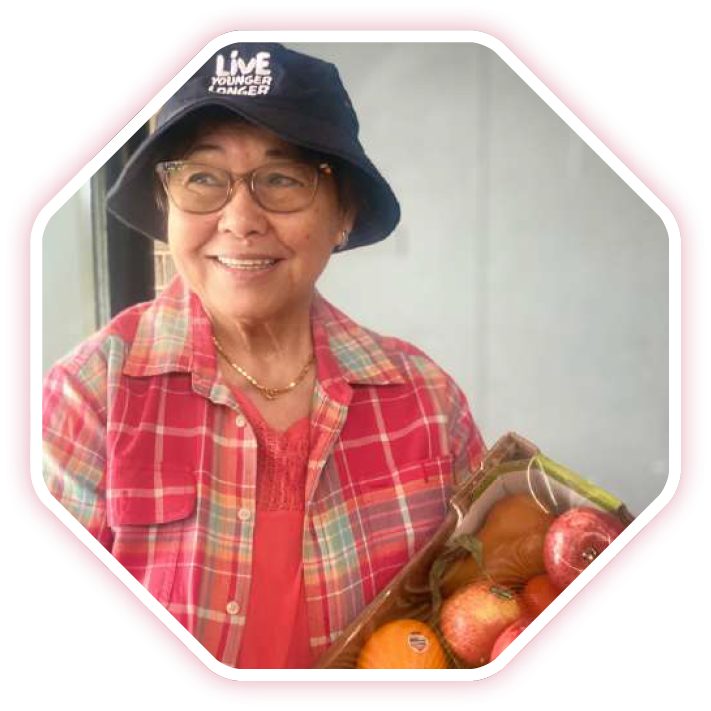
Too Deadly for Diabetes
Too Deadly for Diabetes is a 10-week program that supports Aboriginal and Torres Strait Islander community members living with, or at risk of developing, type 2 diabetes. This year, the team ran three 10-week programs, expertly facilitated by one of Australia’s leading health professionals, Ray Kelly. The program provides participants with an app that includes meal plans and recipes, exercise sessions, education videos, weight loss strategies and weekly weigh-ins, ultimately improving participant’s health and reducing diabetes risk factors.
Background: A woman joined the Too Deadly for Diabetes program following her transition from jail. She had been seeing a counsellor at Marrin Weejali, who referred her to the program. Although she was taking insulin for type 2
diabetes, her limited understanding of the disease led to significant fluctuations in her blood sugar levels throughout the day.
Support: She was provided with a Continuous Glucose Monitor and a reader, allowing her to track the real-time effects of her food choices and physical activity on her blood sugar levels.
Outcome: Within just four weeks, she was able to stop using insulin, as her blood sugar levels normalised. She is very proud of her progress and eagerly looks forward to interacting with other participants. Although initially shy and reserved, her confidence has grown throughout the program, and she now happily shares her experiences and insights with newcomers.




